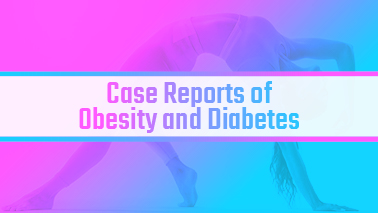
Future of PMPH 2023
Peers Alley Media,Canada

Primary goal of attending an international conference is to present a paper to the experts and influencers. It gives you a platform to exchange your interest-related thoughts, paving the way for possible future collaborations.

Use this platform to build connections with an elite group of wise men and women to enhance your intellect. Young entrepreneurs, this is a great platform to connect with your peers.

Knowledge is Power. Knowledge teaches skills. Skills define excellence. Use this platform to become cognizant of your interest area to achieve excellence in your domain.

Attending a conference give you opportunity to get your abstract or paper published in conference proceedings

Meet and greet a myriad of industry professionals and academia experts with common interest. Every meal will be an opportunity to meet and interact with fellow researchers, attendees and experts.

Expand your professional competency and learn useful tips and tricks of your industry in our skill-building workshops.

Explore insights on recent advancements, new equipment, new techniques, and unpublished data, learn from thought-leaders and get to network with a great line up of speakers.

Our exhibits floor offers the attendees with a dynamic display of the latest products with cutting-edge technology.

Investing in you is the best investment. Peers Alley conferences give the patrons with a feeling of the serendipity of real learning, skill development in strategic workshops, networking and start-up opportunities, thus, is value for money.

Attending the conference gives you much needed break from your regular duties. It also allows you to explore new cities, culture and meet new people. You will feel energized and rejuvenated to return to the university and continue with the job after attending the conference.
Conferences are vital forum for academic researchers and business leaders. "It involves multiple presentations, interactive breakout sessions, hands-on product demonstrations and unrivalled networking opportunities".
We have invited some of the world's most sought-after keynote speakers, experts, brand ambassadors, and industry leaders to share their thoughts and ideas with our conference guests.
Register Now
It gives us an immense pleasure to invite you to participate in the “Global Conclave on Innovations in Pharmaceutical Breakthroughs for Obesity and Metabolic Wellness: From Research to Treatment” which is going to be held in beautiful city Amsterdam, Netherlands during June 27-28, 2024. This conference gives an unparalleled opportunity to network with colleagues and learn from the different leaders in obesity and diabetes research.
This conference makes a perfect platform for global networking as it brings together the renowned speakers, professors, scientists, educationalists, researchers and students across the globe to a most exciting, exceptional, memorable scientific leading event to report and witness the latest scientific achievements in obesity in broad range of scientific fields.
This is an excellent opportunity for the delegates from universities and institutes to connect with the world class scientists and speakers at our “Fit Tech 2024” to discuss new advances in the field of both therapeutic and building to improve the wellbeing and treatment and furthermore the extra developments. We trust that you will get a handle on this scholarly event to renew the suffering associations and blaze with new companions far and wide.
The planning committee has designed a comprehensive program features the best in obesity clinical practice. This two days program delivers you with the complete details of obesity and diabetes.
about Global Fit Tech 2024 conference
On behalf of the Organizing Committee, I would like to welcome all the researchers, specialists and practitioners to this signature event of the year "Global Conclave on Innovations in Pharmaceutical Breakthroughs for Obesity and Metabolic Wellness: From Research to Treatment" which will be held in Amsterdam, Netherlands on June 27-28, 2024.
Obesity is associated to a variety of medical, psychological, and social conditions, such as type 2 diabetes, liver problems, hypertension, cancer, gynecology problems to name a few. 360 million individuals are anticipated to have type 2 diabetes by 2030, up from the estimated 171 million at the beginning of this century.
Conferences like this one may help to speed up the development of viable treatments and therapies for the obesity and weight loss. This conference explores an in depth view of world-class, interdisciplinary research discussion from basic science to advanced research to become leaders in obesity and diabetes research and their relation to cardiovascular disease, atherosclerosis, metabolic diseases, immunological diseases, cancer etc.
Peers Alley Media meetings in this regard aim to promote high level research and to globalise the best research in popular, thereby making discussions, showing more internationally competitive and focusing interest on the most recent enormous achievements in the field of medicine, as well as future traits and desires.
I hope that Fit Tech 2024 is a professionally fruitful and personally enjoyable experience for all who attend, and I look forward to seeing you there.
Sincerely yours,
Global Fit Tech 2024
Organizing Committee
Peers Alley Media
1126 59 Ave East, V5X 1Y9, Vancouver BC, Canada

University of Southern California, USA

University of Central Florida College of Medicine, USA

LIFE*MOD LLC., USA

VERA Health, Netherlands


An excessive quantity of body fat is a complicated condition known as obesity. Obesity is more than simply an aesthetic problem. It's a health issue that raises the chance of conditions including heart disease, diabetes, high blood pressure, and several malignancies.
Some people struggle to lose weight for a variety of reasons. Obesity often develops from a combination of genetic, physiological, environmental, and lifestyle variables that include nutrition, physical activity, and exercise choices.
The relationship between BMI and body fat can vary depending on a variety of variables, including age, sex, ethnicity, and muscle mass. Additionally, the BMI (Body Mass Index) does not discriminate between extra fat, muscle mass, or bone mass, nor does it show how fat is distributed across people. Despite these of drawbacks, BMI is still often used to gauge body size.
The good news is that even a little amount of weight loss can help or possibly prevent health issues related to obesity. You can lose weight by changing your behaviour, doing more exercise, and eating better. There are alternative choices for managing obesity, including prescription drugs and weight-loss techniques.
The good news is that even a little amount of weight loss can help or possibly prevent health issues related to obesity. You can lose weight by changing your behaviour, doing more exercise, and eating better. There are alternative choices for managing obesity, including prescription drugs and weight-loss techniques.
The causes of obesity are as varied as the people it affects.
Obesity naturally occurs when a person routinely consumes more calories than they require. These extra calories are turned into body fat by the body, which causes weight gain over time. Weight loss occurs when you consume less calories than your body uses.
What are some of the factors that increase the risk of obesity?
Genes Are Not Destiny
Heredity plays a role in obesity but generally to a much lesser degree than many people might believe. Genes appear to enhance the chance of weight gain and interact with other risk factors in the environment, such as bad diets and unhealthy lifestyles, rather than being the only factor contributing to obesity. Furthermore, healthy lifestyle choices can offset these inherited consequences.
Prenatal and Postnatal Influences
Smoking or being overweight during pregnancy may increase the likelihood that the unborn kid will become an obese adult. Being breastfed may reduce the risk, however excessive infancy weight gain increases the chance of adult obesity.
Unhealthy Diets
Obesity is mostly caused by the frequent, big meals that have become a feature of the Western diet, which also includes red meat, bad fats, and sugary beverages. Whole grains, vegetables, fruits, and nuts—foods that are absent in the typical Western diet—appear to aid in maintaining a healthy weight and fight against chronic illnesses.
Too Much Television, Too Little Activity, and Too Little Sleep
Watching television is a significant risk factor for obesity, in part due to the ability of food and beverage advertisements to affect consumer behaviour. Insufficient sleep, another feature of the Western way of life, is also being considered a risk factor for obesity.
Toxic Environment-Food and Physical Activity
People's decisions on what to eat and do for recreation are greatly influenced by their physical and social environment. Furthermore, this atmosphere has sadly turned poisonous for healthy life all around the world: promotion of sugary drinks and unhealthy meals that is constant and impossible to escape.
Tags
Obesity Research Conferences
Nutrition Conferences
Weight Loss Conferences 2024
Obesity Diabetes Conference 2023
Diabetes Conferences
Endocrinology Conference
Obesity Conferences 2024 Middle East
Obesity Conference 2024 UK
Obesity Conferences 2023 Europe
Obesity Review Conferences
Diabetes Conference 2023
Maternity Obesity Conferences
Fitness Conferences 2024
Obesity Prevention Conferences
Obesity Treatment Conferences

There are genetic, interactive and hormonal effects on weight, Obesity occurs when you intake more calories than you burn through exercise and ordinary day by day activities. Your body deposits these excess calories as fat. Obesity can sometimes be outlined to a medical cause, such as Prader-Willi disorder, Cushing's syndrome, and different diseases and conditions. The excessive fat increases the risk of numerous health problems. The condition is caused when the body is consuming more calories than it utilizes. Improper diet, lack of physical activities, unhealthy lifestyle, environmental and behavioral factors is some of the few causes for obesity.
• Food addiction
• Insulin resistance
• Sedentary life
• Gut bacteria
• PCOS in women
Tags
Childhood Obesity Conferences 2023
Obesity Conferences 2023 USA
Weight Management Conferences
Obesity Review Conferences
Obesity Reasearch Conferences
Obesity Conferences
Obesity Conference 2024 UK
Obesity Pediatrics Conferences
Diabetes Conference 2023
Obesity Conferences 2024 Middle East
Obesity Conference 2024
Bariatric Surgery Conferences
Obesity Surgery Conferences
Obesity Conferences 2024 Europe
Obesity Prevention Conferences

Recent studies have verified and identified variants in several genes might contribute to body fat distribution and eventually weight gain. Occurance of Inheritable forms of obesity is evidence that fatness is caused by genetic mutations; seventy eight cases worldwide are attributed to mutations of seven distinct genes. Candidate gene and genome-wide association examines have led to the discovery of nine locus concerned in Mendelian forms of obesity and 58 locus put-up to polygenic obesity. These locus justify a small fraction of the heritability for obesity and many genes remain to be discovered.
• Prader–Willi syndrome
• Bardet–Biedl syndrome
• Cohen syndrome
• MOMO syndrome
• Alstrom syndrome
• Carpenter syndrome
• Rubinstein-Taybi syndrome
Tags
Obesity Prevention Conferences
Obesity Conferences 2023 Middle East
Obesity Conferences 2023 Europe
Obesity Reasearch Conferences
Maternity Obesity Conferences
Nutrition Conferences
Obesity Treatment Conferences
Bariatric Surgery Conferences
Obesity Conferences
Clinical Obesity Conferences
Diabetes Conferences
Childhood Obesity Conferences
Obesity Conference 2023 Asia
Obesity Conferences 2024 Middle East
Obesity Conferences 2024 Europe

Obesity in children is assessed by comparing their BMI to that of
other children their age and gender. This differs from how adults
are classified as obese, which is based entirely on BMI
measurements.
|
Percentile Range of BMI |
Classes |
|
<5% |
underweight |
|
5% to <85% |
“Normal’’ weight |
|
85% to <95% |
Over weight |
|
95% or over |
Obese |
Childhood Obesity Causes
At the most basic level, children, like adults, become obese when they consume more calories than their bodies require, a condition known as "energy imbalance."A multitude of factors, including genetics, hormones, metabolic composition, and medical issues, can contribute to this. Obesity in children is generally caused by a complex combination of these and other factors such as nutrition, lifestyle, and environmental situations.
In addition to excessive body weight, typical signs and symptoms of
Childhood obesity include:
• Shortness of breath
• Fatigue
• Increased sweating
• Sleep apnea and snoring
• Joint pain
• Dislocated hips
• Flat feet and knock knees
• Skin rashes and irritation
• Stretch marks on hips, abdomen, and back (though these can occur in non-obese children as well)
• Acanthosis nigricans, which is dark, velvety skin around the neck and in other areas
• Fat tissue in the breast area (which can be particularly challenging for boys)
• Constipation
• Gastroesophageal reflux (also called acid reflux)
• Early puberty in girls
• Delayed puberty in boys
Behavioural Factors
These might include:
• Eating high-calorie, low-nutrient foods and beverages like fast-food, snack foods, candy, and soda
• Eating too much food
• Spending too much time sitting down watching TV or using a computer, tablet, or phone
• Not getting enough exercise.
Genetic Factors:
A child has a greater chance to become fat if at least one parent is obese. (However, if obesity runs in the family, there are several strategies for parents to assist their child lower their risk.)
Several uncommon genetic diseases can cause childhood obesity, either by producing persistent hunger, which leads to overeating, or by modifying the way fat is accumulated in the body.
These are some examples:
• Prader-Willi syndrome
• Pro-opiomelanocortin deficiency
• Leptin receptor deficiency
• Bardet-Biedl syndrome (BBS)
Risk factors:
Many factors usually working in combination increase your child's risk of becoming overweight.
Diet: Consuming high-calorie items on a regular basis, such as fast food, baked goods, and up selling snacks, might lead your child to gain weight. Candy and pastries can also contribute to weight gain, and there is substantial evidence that sugary beverages, such as fruit juices and sports drinks, are contributing factors to obesity in certain people.
Lack of exercise: Lack of physical activity. Children who do not exercise regularly are more prone to acquire weight because they do not burn as many calories as those who do. Sedentary activities, such as watching television or playing video games, add to the condition as well.
Family factors: If your child comes from an overweight family, he or she is more likely to gain weight.
Psychological factors: Personal, parental, and family stress all can increase child’s risk of being obese. Some children overeat to deal with problems or emotions, such as stress, or to avoid boredom. Their parents may have similar traits.
Socioeconomic factor: Some community residents have limited resources and access to stores. As a result, individuals may choose for non - perishable convenience foods such as frozen dinners, crackers, and cookies.
Certain medications: Some prescription drugs can increase the risk of developing obesity. They include prednisone, lithium, amitriptyline, paroxetine (Paxil), gabapentin (Neurontin, Gralise, Horizant) and propranolol (Inderal, Hemangeol).
Tags
Obesity Treatment Conferences
Obesity Conference 2023
Obesity Review Conferences
Fitness Conferences
Obesity Surgery Conferences
Obesity Conferences 2023 Europe
Diabetes Conferences
Fitness Conferences 2024
Obesity Conferences 2023 Middle East
Obesity Medicine Conferences
Obesity Pediatrics Conferences
Obesity Cardiovascular Conferences
Clinical Obesity Conferences
Diabetes Conference 2024
Obesity Diabetes Conference

Obesity is a complex disease characterised by an excess of body fat. It is a medical problem that raises the chance of developing other diseases and health issues, such as heart disease, diabetes, high blood pressure, and some malignancies.
The good news is that even modest weight loss can improve or avoid obesity-related health problems. Weight loss can be aided by a healthier diet, more physical activity, and behavioural changes. Prescription drugs and weight-loss procedures are also treatment options for obesity.
Symptoms:
Obesity is frequently diagnosed using the body mass index (BMI).
| BMI | Weight Status |
| Below 18.5 | Underweight |
| 18.5-24.9 | Normal |
| 25.0-29.9 | Overweight |
Causes
Obesity develops when you consume more calories than you burn through normal daily activity and exercise. There are genetic, behavioural, metabolic, and hormonal influences on body weight. Excess calories are stored as fat by your body. Obese people may consume more calories before feeling full, become hungry sooner, or consume more calories as a result of stress or anxiety.
Risk factors:
Obesity usually results from a combination of causes and contributing factors
Family Inheritance and Influences:
The genes you inherit from your parents may affect how much body fat you accumulate and where it is distributed. Genetics may also play a role how effectively your body transforms food into energy, how it regulates your appetite, and how it burns calories during exercise.
Obesity often runs in families: This isn't only because they share DNA. Family members also have similar food and physical activity habits.
Lifestyle choices
Unhealthy eating habits: A diet heavy in calories, low in fruits and vegetables, high in fast food, and high in high-calorie beverages and oversized portions contributes to weight gain.
Calories from liquids: People may consume a lot of calories without feeling full, especially alcoholic calories. Other high-calorie beverages, such as sugary soft drinks, can also contribute to weight gain.
Inactivity: If you lead a sedentary lifestyle, you might easily consume more calories than you burn through exercise and daily activities. Sedentary activities include staring at computer, tablet, and phone screens. The duration of time spent in front of a screen is strongly associated with weight gain.
Other factors:
Complications:
Cardiovascular disease and stroke: Obesity increases your chances of having high blood pressure and abnormal cholesterol levels, both of which are risk factors for heart disease and stroke.
Type 2 diabetes: Obesity can have an effect on how the body utilises insulin to regulate blood sugar levels. This raises the risk of insulin resistance and diabetes.
Certain cancers: Obesity may raise the risk of uterine, cervix, endometrial, ovarian, breast, colon, rectum, esophageal, liver, gallbladder, pancreatic, kidney, and prostate cancer.
Digestive problems: Obesity increases the likelihood of developing heartburn, gallbladder disease and liver problems.
Sleep apnea: Obese people are more prone to suffer from sleep apnea, a potentially serious disorder in which breathing repeatedly stops and starts during sleep.
Osteoarthritis: Obesity increases the stress on weight-bearing joints while also causing inflammation in the body. These risks can result in consequences like osteoarthritis.
Severe COVID-19 symptoms: Obesity increases the risk of developing severe symptoms if infected with the virus that causes coronavirus disease 2019. (COVID-19). Severe cases of COVID-19 may require treatment in critical care facilities or perhaps ventilators.
Tags
Bariatric Surgery Conferences
Nutrition Conferences
Obesity Conferences 2024 Europe
Obesity Conference 2024 UK
Childhood Obesity Conferences 2023
Obesity Conference 2023 Asia
Obesity Prevention Conferences
Obesity Conference 2024
Obesity Conferences 2024 Middle East
Endocrinology Conference
Obesity Pediatrics Conferences
Obesity Diabetes Conference 2023
Obesity Conferences 2023 USA
Fitness Conferences
Obesity Conferences

Being overweight or obese (extremely overweight) indicates that your body has more fat than other tissue, such as muscle and bone. Excess weight increases the risk of some forms of cancer as well as the return of cancer after treatment.
Why is being overweight linked to cancer risk?
The relationship between body weight and cancer risk is currently being studied by researchers. They discovered numerous reasons why your weight might influence your cancer risk. These are some examples:
Extra weight raises your insulin and insulin growth factor-1 levels (IGF-1). Too much of this hormone can aid in the development of some malignancies.
In addition, fat tissue generates more estrogen. Some malignancies, such as breast cancer, can be aided by Estrogen.
Chronic, low-level inflammation is more frequent in obese persons (especially those with higher abdominal fat), and it has been related to an increased cancer risk.
Fat cells have an impact on how your body regulates cancer cell proliferation.
Changes in your weight over your lifetime can also affect your risk of cancer. Studies show that the following factors can affect your risk:
· Weighing more than most babies at birth
· Gaining weight as an adult
· Losing weight and gaining it back over and over
Eating a well-balanced diet, maintaining a healthy weight, and getting regular exercise reduces your chance of developing cancer. Making these healthy choices can also lower your chance of cancer recurrence if you are a cancer survivor.
What types of cancer are linked to being overweight or obese?
The following types of cancer have been linked to being overweight or obese:
· Breast cancer
· Uterine cancer
· Prostate cancer
· Pancreatic cancer
· Gallbladder cancer
· Thyroid cancer
· Colorectal cancer
· Head and neck cancer
· Esophageal cancer
Maintaining your weight
If you and your health care team are satisfied with your weight and do not desire to lose or gain weight, you should take steps to maintain your weight stable. Here are some simple tips:
• Consume plenty of veggies, fruits, lean proteins, and whole grains.
• Consume meals that satisfy your hunger, such as almonds, seafood, and olive oil.
• Avoid highly processed foods such as chips, white bread, cookies, and packaged meals that include a lot of artificial ingredients.
• Set a goal of 30 to 60 minutes of physical exercise on most days of the week. Physical exercise might be moderate or intense. Take a brisk walk, join an exercise class, or go for a run. If you can't obtain 30 to 60 minutes, do what you can. Even a few more minutes a day reduces your cancer risk.
Reducing cancer risk if you are overweight or obese
If you are overweight or obese, the best strategies to improve your health are to eat better and exercise more. Losing as little as 5% to 10% of your total body weight can reduce your chance of developing cancer. It may appear to be a modest quantity, but research shows that it can improve your health. Even if decreasing weight is difficult for you, eating a more balanced diet and exercising consistently can help lower your cancer risk.
Tags
Obesity Prevention Conferences
Diabetes Conference 2023
Obesity Conferences 2023 Middle East
Obesity Research Conferences
Obesity Surgery Conferences
Obesity Medicine Conferences
Childhood Obesity Conferences 2023
Obesity Conference 2024
Obesity Conferences 2023 UK
Obesity Cardiovascular Conferences
Obesity Conference 2024 UK
Diabetes Conferences
Weight Management Conferences
Obesity Reasearch Conferences
Diabetes Conference 2024

The body requires a wide range of vitamins and minerals that are essential for both body improvement and prevention of a disease. These nutrients and minerals are known as micronutrients. When a nutritional deficiency occurs the body doesn’t absorb or get necessary amount of a nutrient from the food. Deficiencies can prompt to a variety of health issues like digestion problems, skin disorders, stunted or defective bone development, and even dementia.
On other side our metabolism rate at which our body utilizes our nutrition. While there are numerous factors that impacts our metabolism (hormone levels, enzyme secretion, chronic disease conditions, medications, stress, activity level and sleep patterns). The rate of metabolism directly effects, caloric needs and results in weight loss or weight gain.
• Fat burning foods
• Fibre intake
• Low glycaemic index foods
• Metabolic disorder
• Metabolic disease therapy
• Cardiometabolic disease
Tags
Obesity Conferences 2024 Middle East
Obesity Prevention Conferences
Fitness Conferences
Obesity Pediatrics Conferences
Obesity Conference 2024 UK
Nutrition Conferences
Obesity Treatment Conferences
Obesity Conferences
Obesity Conference 2024
Obesity Research Conferences
Weight Loss Conferences 2024
Obesity Surgery Conferences
Childhood Obesity Conferences
Childhood Obesity Conferences 2023
Clinical Obesity Conferences

Diabetes is turmoil of carbohydrate metabolism, usually occurring in hereditarily predisposed individuals. Obesity is specially associated with an improved risk of growing Diabetes Mellitus 2 characterized by inadequate secretion or utilization of insulin and ensuing in excessive amounts of glucose in the blood and urine. the great information is that reducing your edge weight, by way of even a small amount, can help upgrade your body's insulin affectability and lessening your risk of growing cardiovascular and metabolic circumstances including type 2 diabetes, heart disease and kinds of most cancers. Obesity meetings awareness on approach and environmental strategies to make fortifying ingesting and active dwelling convenient and lower valued for everyone.
• Type 1 diabetes mellitus
• Type 2 diabetes mellitus
Tags
Obesity Conferences 2023 USA
Childhood Obesity Conferences 2023
Obesity Conferences
Obesity Reasearch Conferences
Obesity Conferences 2024 Middle East
Clinical Obesity Conferences
Obesity Cancer Conferences
Weight Management Conferences
Obesity Conferences 2024 Europe
Weight Loss Conferences 2024
Fitness Conferences
Obesity Surgery Conferences
Obesity Conferences 2023 Middle East
Obesity Cardiovascular Conferences
Bariatric Surgery Conferences

The primary factor to prevent obesity in children, young people, and adults contributes information on preventing overweight and obesity by modification of lifestyle, focusing on physical activities and well-being, healthy diet along periodical medical examination under masters like dieticians. All kinds of weight problems require changes in physical form deals with weight management in children and adults by regular monitor based on body mass index (BMI). The main treatment for obesity requires physical activities, healthy diet, surgical and non-surgical liposuction.
• Morbid Obesity Treatment
• Combination Therapy for the Treatment Of Obesity
• Weight loss using Kinesiology
• Advanced Inch Loss therapy
• Clinical protocols
• Ketogenic Diet
• Protein rich diets
Tags
Weight Management Conferences
Obesity Conferences 2023 UK
Obesity Conference 2024 UK
Obesity Conferences 2023 Europe
Obesity Conferences
Obesity Research Conferences
Obesity Conferences 2024 Europe
Childhood Obesity Conferences
Obesity Review Conferences
Obesity Conferences 2023 USA
Obesity Cardiovascular Conferences
Weight Loss Conferences 2024
Endocrinology Conference
Bariatric Surgery Conferences
Obesity Diabetes Conference

Around the globe, at scarcest 2.8 million people pass on yearly as it comes to fruition of being overweight or fat, and a surveyed 35.8 million (2.3%) of world DALYs are brought about by overweight or weight. Overweight and bloatedness bring about negative metabolic effects on blood weight, sterol, triglycerides and hypoglycemic administrator obstruction. Perils of coronary heart ailment, cerebrovascular accident and sort 2 diabetes increase predictable with extending weight record (BMI), a level of weight in respect to height. Raised weight list additionally will increase the opportunity of cancer of the breast, colon, prostate, mucous layer, excretory organ and trouble bladder. Death rates increase with extending overweight, as degrees of estimated by weight record. The transcendence of overweight and hugeness were most raised inside the WHO Locales of the Americas (62% for overweight in every sexual orientation, and twenty sixth for weight) and most diminished inside the WHO Locale for South East Asia (14% overweight in males and females and three for corpulence).
• Drug treatments and devices for Obesity
• Nutritional Genomics
• Probiotics for human health
Tags
Obesity Cancer Conferences
Obesity Cardiovascular Conferences
Bariatric Surgery Conferences
Childhood Obesity Conferences
Clinical Obesity Conferences
Obesity Prevention Conferences
Fitness Conferences 2024
Obesity Diabetes Conference
Obesity Conferences
Obesity Pediatrics Conferences
Endocrinology Conference
Obesity Conference 2024 UK
Obesity Conference 2023
Fitness Conferences
Diabetes Conference 2023

Maternal obesity is the biggest challenge for clinical practice due to high prevalence and several adverse maternal and fetal outcomes. Obesity during pregnancy increases the risk of life-long health problems in children, including obesity, type 2 diabetes, and heart disease. In between 10%–30% of pregnant women are reported to be obese every year internationally.
• Obesity
• Maternal health
• Diabetes
• Fetal health
• Birth outcomes
Tags
Obesity Conference 2024
Obesity Conference 2024 UK
Obesity Conference 2023
Obesity Conferences 2023 Europe
Obesity Conferences 2024 Europe
Obesity Cardiovascular Conferences
Obesity Conferences 2023 UK
Nutrition Conferences
Bariatric Surgery Conferences
Obesity Conferences
Obesity Medicine Conferences
Obesity Cancer Conferences
Obesity Surgery Conferences
Weight Management Conferences
Childhood Obesity Conferences

Human Microbiota includes bacteria, fungi, archaea, protozoans and viruses that appear to be even more numerous than those in the human genome. Gut microbiota can influence the extraction of energy from food, lipid metabolism, immune response and endocrine functions and its profile has differentiated between obese and lean subjects.
• Human diabetogenic microbiota
• Diet-Microbiota Interactions
• Nutrigenomics and Nutrigenetics
• Host Metabolism
• Probiotics
• Prebiotics
Tags
Obesity Conferences 2024 Europe
Obesity Medicine Conferences
Obesity Conferences
Obesity Conferences 2023 Europe
Bariatric Surgery Conferences
Maternity Obesity Conferences
Obesity Conference 2024 UK
Childhood Obesity Conferences 2023
Obesity Treatment Conferences
Obesity Conferences
Obesity Diabetes Conference
Weight Management Conferences
Obesity Conference 2023 Asia
Endocrinology Conference
Childhood Obesity Conferences

Morbid Obesity is a severe health condition resulting from an abnormally high body mass index. Obesity and morbid obesity are the result of too much fat stored in your body. Anyone can gain weight and become obese if they eat more calories than their bodies can utilize to covert calories into energy. Other factors, such as stress, anxiety, and insomnia, can lead to weight gain
• Osteoarthritis
• Heart disease and blood lipid abnormalities
• Stroke
• Type 2 diabetes
• Sleep apnea (when you periodically stop breathing during sleep)
• Reproductive problems
• Gallstones
• Certain cancers
• Obesity hypoventilation syndrome
• Metabolic syndromerences
Tags
Clinical Obesity Conferences
Diabetes Conference 2024
Obesity Conference 2023
Fitness Conferences
Obesity Cancer Conferences
Obesity Diabetes Conference
Nutrition Conferences
Obesity Prevention Conferences
Maternity Obesity Conferences
Diabetes Conference 2023
Obesity Conferences 2023 UK
Diabetes Conferences
Fitness Conferences 2024
Obesity Pediatrics Conferences
Obesity Conferences 2023 Middle East

Weight Management is the process of adopting a long-term lifestyle change to keep a healthy body weight based on the age, sex and height of a person. Obesity is a chronic condition in the United States that affects more than one in three adults and about 17% of children and adolescents. Being overweight or obese increases your risk of type 2 diabetes, heart disease, stroke, liver fatty disease, kidney disease, and other health problems.
• Binge Eating Disorder
• Weight-loss & Nutrition Myths
• Helping Your Overweight Child
• Take Charge of Your Health: A Guide for Teens
• Food Portions
• Bariatric Surgery for Severe Obesity
• Type 2 Diabetes
• Kidney Disease
• Fatty Liver (NASH)
• Heart Disease & Stroke
• Sleep Apnea
Tags
Childhood Obesity Conferences
Weight Management Conferences
Obesity Conferences 2024 Middle East
Diabetes Conference 2023
Obesity Conferences 2023 Europe
Fitness Conferences 2024
Clinical Obesity Conferences
Obesity Conference 2023 Asia
Fitness Conferences
Obesity Pediatrics Conferences
Obesity Conference 2024
Obesity Diabetes Conference 2023
Obesity Conferences 2023 UK
Obesity Surgery Conferences
Diabetes Conferences

The body produces cholesterol, a waxy molecule that is also present in several animal-based diets. HDL-C, or "good" cholesterol, and LDL-C, or "bad" cholesterol, are two types of fat that are measured by blood cholesterol levels. Although cholesterol is crucial for good health, having too high of LDL-C levels can lead to clogged or restricted arteries. Unfortunately, elevated cholesterol is more common in those with diabetes, which increases the risk of cardiovascular disease (CVD).
1. LDL cholesterol is considered to be "bad" cholesterol.
A increased risk of CVD is linked to having a high LDL-C level. However, your LDL cholesterol level shouldn't be the primary determinant of treatment to fend against heart attacks and strokes. You can have higher LDL cholesterol if you eat a diet rich in trans and saturated fats.
2. "Good" cholesterol is high-density lipoprotein (HDL) cholesterol.
Higher HDL-C levels are linked to a lower risk of CVD. You are more likely to develop heart disease if you have low HDL cholesterol. The levels of HDL cholesterol are also lowered by genetic factors, Type 2 diabetes, and some medications, including beta-blockers and anabolic steroids. Sedentary lifestyles, excess weight, and smoking all reduce HDL cholesterol.
3. Triglycerides
The most prevalent kind of fat in the body is triglyceride. Age and sex affect normal triglyceride levels differently. The risk of heart attack, peripheral artery disease (PAD), and stroke is increased by atherosclerosis, the build-up of fatty deposits in arterial walls, which is associated with high triglyceride levels and low HDL cholesterol or high LDL cholesterol.
How does diabetes impact lipid levels?
Diabetes increases the risk for heart disease and stroke by lowering "good" cholesterol levels while raising triglycerides and "bad" cholesterol levels. Diabetic dyslipidaemia is the name given to this condition.
If you have diabetic dyslipidaemia, your lipid profile is changing negatively. People are more susceptible to atherosclerosis and early-onset coronary heart disease as a result of this combination.
Tags
Obesity Conferences 2023 UK
Obesity Conference 2023
Obesity Conferences 2023 Europe
Obesity Conferences 2023 USA
Weight Management Conferences
Obesity Conferences 2024 Middle East
Obesity Surgery Conferences
Diabetes Conferences
Obesity Reasearch Conferences
Obesity Review Conferences
Obesity Cardiovascular Conferences
Childhood Obesity Conferences
Clinical Obesity Conferences
Obesity Pediatrics Conferences
Obesity Treatment Conferences

Those who are overweight or obese, as opposed to those who are at a healthy weight, are more likely to develop a variety of significant illnesses and medical disorders.
These consist of:
1.Total number of deaths (mortality).
2. Blood pressure problems (hypertension).
3.High levels of triglycerides, low HDL cholesterol, or high LDL cholesterol (dyslipidaemia).
4.Type 2 diabetes.
5.coronary artery diseases
6.Stroke.
7.Gallbladder Diseases
8.Osteoarthritis (a breakdown of cartilage and bone within a joint).
9.Breathlessness and sleep apnea.
• A variety of cancers.
• Poor living quality.
• Mental illness including clinical depression, anxiety, and others
• Body pain and difficulty with physical functioning.
Body mass index (BMI) of 25 or more is regarded as overweight. A BMI of 30 or above indicates obesity. Check out the BMI calculators for persons aged 2 to 19 as well as those for those who are 20 years of age or over.
Tags
Obesity Treatment Conferences
Obesity Conferences 2023 Middle East
Obesity Medicine Conferences
Obesity Surgery Conferences
Obesity Conferences 2023 Europe
Maternity Obesity Conferences
Endocrinology Conference
Childhood Obesity Conferences 2023
Fitness Conferences 2024
Obesity Research Conferences
Obesity Conferences 2023 UK
Obesity Prevention Conferences
Childhood Obesity Conferences
Obesity Review Conferences
Diabetes Conference 2023

Obesity in animal’s manifests as an accumulation of extra adipose tissue and is typically understood to arise when an animal's body weight is at least 20% higher than its ideal body weight. Changes in metabolism and hormones are linked to obesity.
Using a 9-point body condition score (BCS) method, it is possible to determine whether dogs and cats are overweight or not. Scores 1-3 denote "too thin," 4, 5, 6, "above ideal," 7, "overweight," and 8 and 9 denote "obesity." In practise, these BCS techniques are the ones that are most frequently commonly to diagnose obesity. Body Condition Score is rapid, non-invasive, and doesn't require any specialised equipment; all you need are the scoring charts and a clinician, even if it's not as accurate as using DEXA scans to determine the true body fat percentage.
Causes:
When an animal has a positive energy balance—that is, when the number of calories it consumes exceeds the number of calories it consumes—weight increase will result. According to the available data, middle-aged cats and dogs, particularly those between the ages of 5 and 10, may be more likely to be obese. Pet obesity is typically brought on by an excessive food intake or a lack of activity. The shift in sex hormones that occurs after neutering slows basal metabolic rate, and neutered animals also tend to be less roaming than non-neutered cats, which raises the risk of obesity in cats.
Management:
Weight loss and weight maintenance are the first two steps in weight management. Energy intake from food must be lower than energy expended daily during the weight loss phase. It can be difficult to get cats and dogs to reduce weight, and failure to do so is frequent.
Conclusion:
Obese dogs and cats are more likely to develop diabetes mellitus and osteoarthritis (joint disease), which also appear earlier in life than in non-obese animals. Animals who are obese are more likely to experience difficulties after surgery or anaesthesia.
Obese dogs are more likely to develop urinary incontinence, obese dogs are more compared to suffer urinary incontinence, may have lung problems, and generally have a reduced quality of life. Obese cats are more susceptible to illnesses of the mouth and urinary system. Obese cats who struggle to groom themselves are more likely to develop dry, flaky skin and feline acne.
Tags
Obesity Conference 2024 UK
Weight Management Conferences
Obesity Conferences 2023 USA
Diabetes Conference 2023
Obesity Review Conferences
Obesity Medicine Conferences
Bariatric Surgery Conferences
Maternity Obesity Conferences
Obesity Conferences 2023 Middle East
Diabetes Conference 2024
Clinical Obesity Conferences
Obesity Diabetes Conference 2023
Obesity Conferences
Obesity Conferences 2024 Europe
Endocrinology Conference

A case report is a comprehensive report of the signs, symptoms, diagnosis, treatment, and follow-up of a specific patient in the field of medicine. The patient's demographics may be included in case reports, although most of the time they focus on an unusual or novel occurrence. A literature evaluation of prior reported cases is also included in some case reports. Case reports are professional narratives that give input on clinical practice recommendations and provide a structure for early signs of effectiveness, adverse events, and cost. They may be shared for medical, scientific, or educational purposes.
Types
Most case reports are on one of six topics:
An unexpected association between diseases or symptoms.
An unexpected event in the course of observing or treating a patient.
Findings that shed new light on the possible pathogenesis of a disease or an adverse effect.
Unique or rare features of a disease.
Unique therapeutic approaches.
A positional or quantitative variation of the anatomical structures.
Roles in research and education
Anecdotal evidence is typically referred to as a form of case report. Case reports and case series are placed at the bottom of the hierarchy of clinical evidence due to their intrinsic methodological limitations, which include a lack of statistical sampling. However, case reports do play genuinely beneficial roles in scientific research and evidence-based medicine. In particular, they have facilitated recognition of new diseases and adverse effects of treatments (e.g., recognition of the link between administration of thalidomide to mothers and malformations in their babies was triggered by a case report).
Case reports are useful for pharmacovigilance. Additionally, they also help in understanding the clinical spectrum of rare diseases as well as peculiar appearances of common diseases. They can aid in developing research hypotheses, especially those involving plausible health processes. The personalization of therapies in clinical practice may also be influenced by case reports.
Case reports and series have a high sensitivity for detecting novelty and therefore remain one of the cornerstones of medical progress and they provide many innovative ideas in medicine. The case report can go into great depth about many different aspects of the patient's medical status, whereas randomised clinical studies often only investigate one variable or very few factors, rarely reflecting the complete representation of a difficult medical situation (e.g., patient history, physical examination, diagnosis, psychosocial aspects, follow up).
Case reports can be useful in medical education by giving case-based learning a structure.
Case Report Uses:
Case reports can be used for a number of purposes. They offer readers innovative and rare medication side effects, provide them with a pattern to recognize such rare situations in their own practice, and highlight advances in medical care, ethical problems, and advancements in medical science.
Tags
Obesity Conferences 2024 Middle East
Obesity Conference 2024 UK
Obesity Surgery Conferences
Diabetes Conference 2024
Obesity Conferences
Endocrinology Conference
Fitness Conferences
Obesity Conferences 2024 Europe
Obesity Conferences
Obesity Medicine Conferences
Weight Management Conferences
Obesity Conferences 2023 UK
Weight Loss Conferences 2024
Obesity Diabetes Conference 2023
Obesity Conferences 2023 Europe

The food alternatives we make can have a crucially affect our wellness, Diets concentrated on a heavily clumsy protein stack can be strenuous to save and as often as possible convey their case prosperity hazard. A couple of these risks consolidate stopping up because of a need of dietary fiber, enlarged heart disease possibility (with higher bronzed meat usage), and reduced kidney work for people. Tall Protein Count Calories are kenned to enhearten weight adversity however following to them can be troublesome. Restrict the consumption of sugar and fats, not extra than 30% of the entire calories must come from fat, decide upon unsaturated fat to saturated fat. Avoid taking Trans fats.
The amount of the energy consumed in relevancy to physical activity and also the quality of food are key determinants of nutrition which connects to chronic disease.
• Heart disease
• Diabetes
• Hyperlipidemia
• Stroke
• Cancer
• Osteoporosis and bone fractures
• Dental disease
Tags
Obesity Medicine Conferences
Obesity Conference 2024
Diabetes Conference 2024
Weight Management Conferences
Diabetes Conference 2023
Obesity Review Conferences
Obesity Conferences
Obesity Research Conferences
Bariatric Surgery Conferences
Obesity Prevention Conferences
Obesity Conference 2023 Asia
Obesity Conferences 2023 Middle East
Obesity Conferences 2024 Middle East
Obesity Diabetes Conference 2023
Diabetes Conferences

Obesity is an autonomous hazard factor for cardiovascular Disease, and Cardiovascular Disease dangers have additionally been reported in obese children. Obesity is linked with an increased risk of mortality and horribleness as well as decrease in life expectancy. Medical expenses and health wellbeing health service use associated with obesity have risen and are relied upon to keep on rising.
• Dyslipidemia
• Glucose intolerance
• Coronary heart disease
• Heart failure
• Cardiac Stroke
• Myocardial infarction
• Hypertension
• Probiotics for human health
Tags
Diabetes Conference 2024
Obesity Research Conferences
Obesity Conferences 2024 Europe
Obesity Conference 2024 UK
Obesity Conferences 2023 USA
Maternity Obesity Conferences
Obesity Pediatrics Conferences
Obesity Treatment Conferences
Obesity Conferences
Obesity Conferences 2023 Middle East
Clinical Obesity Conferences
Obesity Medicine Conferences
Fitness Conferences 2024
Obesity Conference 2023
Obesity Conference 2023 Asia

Anti-obesity drugs or weight hardship drugs are pharmacological experts that reduce or control weight. These drugs alter one of the essential types of the human body, weight control, by modifying either appetite, or maintenance of calories. The most treatment modalities for overweight and robust individuals stay counting calories and physical work out.
• Anti-obesity agents
• Obesity
• Safety
Tags
Obesity Conferences
Endocrinology Conference
Obesity Reasearch Conferences
Weight Management Conferences
Fitness Conferences
Obesity Conference 2024
Obesity Conferences 2023 Europe
Obesity Conferences 2023 USA
Childhood Obesity Conferences 2023
Obesity Pediatrics Conferences
Obesity Conferences 2023 UK
Diabetes Conferences
Obesity Conferences
Obesity Cancer Conferences
Obesity Review Conferences

Preventing obesity is very important. Once fat cells structure, they remain in your body until the end of time. Even though you can reduce the size of fat cells, still it’s impossible to get rid of them. Obesity expertise recommend that a key to preventing enormous weight gain is monitoring fat intake instead of counting calories, and therefore the National cholesterol Education Program keeps up that only 30 % of calories ought to be gotten from fat. Only one-third of those calories should be contained in saturated fats (the sensibly fat found in high concentrations in meat, poultry, and dairy farm products).Because the vast majority eat more than they might suspect they do, keeping a point by point nourishment journal is a valuable method to evaluate dietary patterns.
• Weight loss programs
• Clinical protocols
• Ketogenic Diet
• Protein rich diets
Tags
Clinical Obesity Conferences
Obesity Prevention Conferences
Endocrinology Conference
Obesity Conference 2024 UK
Childhood Obesity Conferences
Bariatric Surgery Conferences
Maternity Obesity Conferences
Nutrition Conferences
Diabetes Conference 2024
Obesity Conferences 2023 Middle East
Obesity Diabetes Conference 2023
Diabetes Conference 2023
Obesity Conference 2023 Asia
Childhood Obesity Conferences 2023
Obesity Review Conferences

Customary Chinese medication is a sort of traditional prescription generally dependent on over 2,500 years of age Chinese therapeutic practice which incorporates different types of herbal therapy, acupuncture (needle therapy), massage therapy, and dietary treatment to prevent medical issues. Acupuncture (needle therapy) includes flimsy needles which are embedded into the body. Needle therapy is normally sheltered when done by appropriately by a prepared specialist utilizing spotless and single-utilized needle strategy.
• Chinese herbal medicine
• Tui-na
• Food therapy
• Qi-gong
• Tai-chi
Tags
Obesity Treatment Conferences
Obesity Conferences 2023 Middle East
Obesity Cardiovascular Conferences
Weight Management Conferences
Obesity Conferences
Maternity Obesity Conferences
Obesity Diabetes Conference
Obesity Reasearch Conferences
Obesity Surgery Conferences
Obesity Diabetes Conference 2023
Diabetes Conference 2023
Diabetes Conferences
Childhood Obesity Conferences 2023
Obesity Conferences 2023 Europe
Obesity Medicine Conferences

The time required to do liposuction varies significantly, basing on the size of the area treated, the entirety of fat being expelled, the sort of anesthesia utilized and the liposuction procedures which are chosen. A small area, as such chin or neck can be treated under 30 minutes, while a most wide process might last several hours. During the methodology, a sedated liquid is first infused into the treatment territories before the fat is expelled. This liquid is a blend of vein salt arrangement, lidocaine (a nearby sedative), and epinephrine (a medication that tightens veins). Liposuction works by bringing liquid into the zones where fat should be expelled. At that point, modest cylinders are embedded through scarcely recognizable cuts. The liquid that was embedded enables evacuate to fat all the more adequately when it's sucked out through the channels that were embedded. When the ideal shape is gotten, a compressive piece of clothing is set, this limits recoloring and bolsters in patient solace.
• Liposuction procedure
• Liposuction techniques
• Risks involved in liposuction
• Cool sculpting technique
• Zerona method
• Trusculpt method
Tags
Weight Loss Conferences 2024
Obesity Conferences
Childhood Obesity Conferences 2023
Obesity Diabetes Conference 2023
Obesity Diabetes Conference
Diabetes Conference 2023
Weight Management Conferences
Bariatric Surgery Conferences
Obesity Conference 2023 Asia
Obesity Surgery Conferences
Obesity Conferences 2024 Europe
Obesity Research Conferences
Obesity Conference 2023
Nutrition Conferences
Obesity Reasearch Conferences

Kidney and Heart imbalance
Kidney and heart imbalance is one of the most widely recognized conflicts of adrenal exhaustion.
This example ordinarily happens in stressed individuals who utilize the mind in abundance/excess thinking.
The adrenal fatigue symptoms associated are:
• insomnia
• heart palpitation
• anxiety & depression
• heart conditions
• emotion instability
• fibromyalgia and so on
Tags
Obesity Conference 2024 UK
Obesity Medicine Conferences
Obesity Conference 2024
Obesity Conferences
Weight Management Conferences
Diabetes Conferences
Obesity Conferences 2023 Europe
Obesity Conferences 2023 Europe
Fitness Conferences
Diabetes Conference 2024
Weight Loss Conferences 2024
Obesity Conferences 2023 UK
Endocrinology Conference
Nutrition Conferences
Maternity Obesity Conferences

Several investigations have discovered numbers of patients with mental illness are obese compared to the general population. Psychological sickness may expand the danger of weight gain, on other hand obesity may increase an individual's chances to develop a psychiatric disorder. The purpose behind the connection between obesity and psychiatric issues are self portrait/ under confident, the biological disturbances caused by obesity, physical activity and the social shame identified with being overweight. Epidemiological examinations legitimize positive relationship among obesity and state of mind issue.
• Personality disorder
• Eating disorder
• ADHD
• Alcohol use
• Mood Disorder
• Depression
• Anxiety Disorder
• Substance use Disorder
Tags
Obesity Diabetes Conference 2023
Maternity Obesity Conferences
Weight Management Conferences
Endocrinology Conference
Obesity Conferences 2023 Middle East
Obesity Medicine Conferences
Obesity Conference 2024
Nutrition Conferences
Weight Loss Conferences 2024
Obesity Conferences 2023 UK
Diabetes Conferences
Obesity Research Conferences
Diabetes Conference 2023
Obesity Prevention Conferences
Obesity Conferences 2023 USA

Bariatric surgery procedure comprises of methods performed on an individual who experiences obesity, along these lines lessening the hazard related with weight. The fundamental thought behind the medical procedure is confinement and Malabsorption. Surgery procedure confines the measure of food the stomach can hold, accordingly limiting the quantity of calorie consumption. Malabsorption abbreviates the length of small digestive system decreasing the measure of calories and supplements the body can ingest. An obese woman is set three times as liable to be infertile as everyday woman. The obese women have a decrease opportunity of being pregnant as well as have delivered down the shot following in vitro remedy.
• Gastric by-pass
• Laparoscopic adjustable gastric banding
• Sleeve gastrostomy
• Duodenal switch with biliopancreatic diversion
Tags
Weight Management Conferences
Obesity Conferences 2023 USA
Obesity Conferences 2023 Europe
Obesity Conference 2024
Obesity Conferences 2023 Europe
Obesity Review Conferences
Obesity Reasearch Conferences
Obesity Surgery Conferences
Childhood Obesity Conferences 2023
Obesity Conference 2023 Asia
Obesity Cancer Conferences
Obesity Prevention Conferences
Obesity Diabetes Conference
Obesity Conference 2023
Clinical Obesity Conferences

The purpose of corpulence treatment is to join achieving and keeping up a strong body. Weight loss treatment, other than weight incident medical procedures fuse dietary changes, physical activity, weight reduction prescription, lead changes, Calorie counting.
• Dietary Changes
• Physical Activity
• Behavior Modification
• Therapy to Eating Disorders
Tags
Obesity Review Conferences
Obesity Conferences 2023 Europe
Obesity Conferences 2024 Middle East
Diabetes Conference 2023
Obesity Pediatrics Conferences
Endocrinology Conference
Childhood Obesity Conferences
Clinical Obesity Conferences
Obesity Cardiovascular Conferences
Obesity Conferences
Obesity Conference 2023
Obesity Conferences 2024 Europe
Obesity Cancer Conferences
Diabetes Conference 2024
Obesity Prevention Conferences

Obesity is a complex metabolic and behavioural disorder associated with increased health risk, including coronary artery disease, heart failure congestive, and sudden heart death. Effective approaches for obesity prevention and treatment are needed. This unmet need for effective and safe anti-obesity medication at various stages of development resulted in many new therapies. Obesity is one thing
• Physiology and pathophysiology of adipose tissue
• Modulators of dietary absorption
• Animal cell models
• Human cell models
• Antiobesity drugs in the pipeline
Tags
Bariatric Surgery Conferences
Obesity Cardiovascular Conferences
Obesity Conference 2024 UK
Obesity Conferences 2023 Middle East
Fitness Conferences 2024
Maternity Obesity Conferences
Obesity Conferences 2023 Europe
Obesity Conferences 2023 Europe
Obesity Conference 2023
Obesity Conference 2023 Asia
Obesity Diabetes Conference
Obesity Conferences 2023 UK
Obesity Pediatrics Conferences
Obesity Conference 2024
Diabetes Conference 2023

Overweight and obesity are two of the most significant problems in public health. There is a clear link between lifestyle and obesity. This relationship means that unhealthy lifestyles can affect the physiological response of people by means of adipocytokines, pro-inflammatory factors closely linked to chronic degenerative diseases.
• Metabolic syndrome
• Malnutrition
• Gestational diabetes
• Perinatal nutrition
• Foetal development
• Metabolic diseases
• Central nervous system
• Energy balance and metabolism
• Genetic transcription
• Umbilical cord blood
• Cardiovascular risk
Tags
Obesity Conferences
Obesity Treatment Conferences
Obesity Conferences 2024 Europe
Obesity Conferences
Obesity Conferences 2023 Middle East
Childhood Obesity Conferences 2023
Weight Management Conferences
Endocrinology Conference
Obesity Diabetes Conference 2023
Diabetes Conferences
Obesity Conferences 2024 Middle East
Obesity Conference 2023
Obesity Conference 2024
Clinical Obesity Conferences
Obesity Reasearch Conferences

Pathophysiology Obesity is caused by an imbalance between energy and caloric intake. This disparity is believed to be under the control of genes and the environment. The discovery of immunological anomalies in obesity linked to the leptin-proopiomelanocortin system and the alpha (TNF-α) elevated tumor necrosis factor brought a new insight to obesity awareness.
• Genetic basis
• Environmental and behavioral origins
• Neurohormones
• Type 2 diabetes
• Insulin resistance
Tags
Childhood Obesity Conferences 2023
Obesity Cancer Conferences
Childhood Obesity Conferences
Clinical Obesity Conferences
Obesity Conference 2024
Diabetes Conference 2024
Obesity Conferences 2023 Middle East
Bariatric Surgery Conferences
Obesity Pediatrics Conferences
Obesity Reasearch Conferences
Endocrinology Conference
Obesity Conferences
Obesity Diabetes Conference 2023
Obesity Conferences 2023 Europe
Obesity Conference 2024 UK

Overweight and obesity epidemic poses a major challenge to the prevention and health of chronic diseases throughout the world's life course. Fuelled by economic growth, industrialization, mechanized transport, urbanization, an increasingly sedentary lifestyle, and a dietary transition to processed foods and high-calorie diets over the past 30 years, most countries have witnessed predictions.
• Prevalence
• BMI
• Adiposity
• Health risk
Tags
Obesity Cancer Conferences
Fitness Conferences
Obesity Conference 2023
Obesity Conferences 2024 Europe
Obesity Reasearch Conferences
Weight Management Conferences
Obesity Conferences 2023 Europe
Maternity Obesity Conferences
Obesity Conferences 2024 Middle East
Obesity Conferences 2023 Europe
Obesity Medicine Conferences
Obesity Conferences 2023 USA
Clinical Obesity Conferences
Endocrinology Conference
Childhood Obesity Conferences 2023

Obesity is the result of genetic, behavioral, environmental, physiological, social, and cultural factors resulting in energy imbalance and promoting excessive deposition of fat. There has been extensive study of the relative contribution of each of these factors, and although genes play an important role in regulating body weight. Interactions between the genotype and the environment were also involved in the development of obesity.
• Energy balance
• Genetics
• Dietary Intake
• Physiological functions
• Leptin
Tags
Obesity Research Conferences
Obesity Treatment Conferences
Obesity Conferences 2023 UK
Obesity Diabetes Conference
Obesity Cancer Conferences
Diabetes Conference 2023
Obesity Conferences
Clinical Obesity Conferences
Obesity Diabetes Conference 2023
Fitness Conferences
Obesity Conferences 2024 Europe
Bariatric Surgery Conferences
Obesity Cardiovascular Conferences
Obesity Conferences 2024 Middle East
Nutrition Conferences

Obesity is typically brought on by the disease of accumulating too much body fat. A new epidemic that is killing millions of people worldwide is obesity.
Features of metabolic syndrome
Metabolic syndrome is characterized by:-
Obesity usually is caused by the underlying pathology of accumulation of excess body fat. Obesity is a new epidemic that is affecting millions worldwide.
Central obesity (abdominal obesity) as well as obesity in general is associated with physiological changes that may cause the development of diseases like high blood pressure, heart disease, high blood cholesterol and type 2 diabetes.
Obesity also raises the risk of fatty liver disease, gall bladder disease, osteoarthritis and certain cancers. It is estimated that the cost of treating obesity related diseases contributes 2–7% of total national health care costs in developed countries.
Diabesity
The word "diabesity" was created to stress the connection between type 2 diabetes and obesity because both illnesses are increasing at rapid and exponential rates.
However, experts claim that elevated blood sugar levels are merely the tip of the iceberg. when it comes to metabolic abnormalities that are linked to the metabolic syndrome, which is common in overweight and obese people with extra belly fat and insulin resistanc
Insulin resistance and obesity
Insulin resistance is thought to be a crucial link between metabolic syndrome and obesity. Not all fat patients, however, are insulin resistant or at a high risk of developing diabetes and heart disease. However, individuals with abdominal obesity are more likely than others to develop insulin resistance and the metabolic syndrome.
Tags
Obesity Conferences
Obesity Prevention Conferences
Weight Loss Conferences 2024
Obesity Reasearch Conferences
Obesity Review Conferences
Nutrition Conferences
Obesity Conferences 2024 Europe
Fitness Conferences 2024
Maternity Obesity Conferences
Childhood Obesity Conferences
Obesity Cardiovascular Conferences
Diabetes Conference 2023
Diabetes Conference 2024
Endocrinology Conference
Obesity Conference 2023

Weight loss pills, sometimes referred to as weight reduction pharmaceuticals or anti-obesity medications, are prescription treatments that regulate your appetite and food cravings. The FDA has recently approved a number of anti-obesity medications that decrease appetite and food cravings.
Drugs for weight reduction reduce your appetite, which lowers the number of calories your body consumes daily. You will lose weight over time if you eat less calories. In particular for sweets and fatty, salty, high-calorie foods, several anti-obesity drugs assist reduce cravings and manage obsessive eating.
FDA-approved weight loss medications include the following:
• phentermine (Adipex, Lomaira)
• lorcaserin (Belviq)
• phentermine/topiramate ER (Qsymia)
• Naltrexone/buproprion HCL (Contrave)
Health Benefits of Losing Weight:
There are also positive health benefits to losing weight. Losing just five—10 percent of your body weight will lower your:
• blood pressure,
• lipid levels (fats), and
• glucose (blood sugar
Side Affects:
Before you’re prescribed any anti-obesity medications, your doctor will ask for your entire medical history, including any:
• diseases you have;
• what medications you take now; and
• what medications you’ve taken in the past.
Tags
Obesity Diabetes Conference 2023
Obesity Cardiovascular Conferences
Clinical Obesity Conferences
Obesity Conferences 2023 Middle East
Fitness Conferences 2024
Weight Loss Conferences 2024
Obesity Reasearch Conferences
Childhood Obesity Conferences 2023
Obesity Review Conferences
Fitness Conferences
Diabetes Conference 2023
Obesity Research Conferences
Diabetes Conferences
Obesity Conference 2023 Asia
Obesity Cancer Conferences

It has been shown that hormones, including sex hormones and glucocorticoids, influence a variety of cellular processes in the central nervous system, including neurodevelopment and neurodegeneration. Glucocorticoid activity and the hypothalamic-pituitary-adrenal axis are involved in neurodegenerative processes, including those that lead to diseases like Alzheimer's and Parkinson's.
It has demonstrated that sex hormones can alter cognitive performance. Neurodegenerative illnesses frequently exhibit inflammation, and sex hormones and glucocorticoids can control the inflammatory response.
On the other hand, metabolic disorders, like diabetes, are linked to neurodegeneration while obesity enhances inflammatory vulnerability. Given that the pathogenesis of neurodegeneration may be greatly influenced by gonadal and/or adrenal steroids
Neuroinflammation and Steroidal Hormones
After a physiological or psychologically induced stressful stimuli, the adrenal glands release glucocorticoids that promote anti-inflammatory and immunosuppressive effects via a variety of genomic and non-genomic processes, including the upregulation of anti-inflammatory gene expression.
Sex hormones
Levels of C-reactive protein, -glutamyl transferase, and white blood cell and granulocyte count were some of the markers of metabolic syndrome and inflammation that were negatively linked with testosterone and sex hormone-binding globulin (SHBG) levels.
Conclusion:
In conclusion, glucocorticoid pathways are strongly associated with DER, including the development of potential pharmacological interventions that could mimic the positive effects of DER. Glucocorticoids have historically been characterised as mediators of many anti-inflammatory effects observed within DER protocols. Closely, a body of evidence points to the possibility that increased glucocorticoid signalling and neuroinflammation are to blame for an HFD's negative impacts on behaviour and cognitive performance.
Tags
Diabetes Conference 2023
Diabetes Conferences
Obesity Conferences 2023 Europe
Obesity Conferences 2023 Middle East
Obesity Conferences 2024 Europe
Obesity Pediatrics Conferences
Bariatric Surgery Conferences
Maternity Obesity Conferences
Obesity Conferences 2023 UK
Obesity Reasearch Conferences
Fitness Conferences
Obesity Conference 2023 Asia
Fitness Conferences 2024
Childhood Obesity Conferences
Obesity Diabetes Conference 2023

Obesity and cancer
The American Cancer Society estimates that up to 20% of all cancer deaths are caused by excess body weight. It makes sense that controlling one's weight and maintaining a healthy lifestyle are promising strategies to lower the country's cancer rate and save lives, given that obesity is significantly more preventable than many types of cancer. the dangers of various cancer forms. These include multiple myeloma and Hodgkin's lymphoma in addition to malignancies of the colon, kidney, endometrium, oesophagus, pancreas, gall bladder, thyroid, ovary, cervix, and prostate. In post-menopausal women, being overweight or obese also increases the risk of developing breast cancer.
Obesity and diabetes
Children who are more likely to be obese as adults have a higher chance of having type 2 diabetes. Pre-diabetes, a disease where blood glucose levels put the person at high risk for developing diabetes, is more prevalent among obese children and adolescents.
A balanced diet and regular exercise are still essential for controlling and preventing both type 2 diabetes and obesity. But it's obvious that we need more options given the escalating rates of each.
Obesity and heart disease
Even if a person does not have other heart disease risk factors, being obese dramatically increases their risk of developing heart disease.
Maintaining a healthy weight, as indicated by a body mass index (BMI) of less than 25, enables a person to circulate blood and control fluid levels more effectively. The heart, circulatory system, and kidneys will experience less strain as a result of this easier job. system and makes it work harder. One of the main causes of elevated blood cholesterol levels is obesity. High cholesterol is a crucial factor in the development of arterial plaque, which is a leading cause of heart attacks.Obesity and neurological degeneration:
Over the past 20 years, a growing body of research has revealed connections between obesity and neurodegenerative disorders, particularly Alzheimer's. For the brain to function properly, it needs access to oxygen and nourishment. A network of blood arteries that gets ever more refined provides that supply.
Atherosclerosis, or the deteriorating flexibility of blood vessels, is also largely attributed to long-term high blood pressure, which strains the walls of our blood vessels, and high cholesterol, which adds to the accumulation of plaque in the arteries.
Obesity and stroke
Though stroke occurs almost exclusively in adults, the epidemic of obesity in children is decreasing the average age of victims and putting our next generation more at risk for this debilitating, often deadly event.
High blood pressure is the leading cause of stroke and death rates due to stroke are nearly 45 percent, according to the American Heart Association. Excess weight and physical inactivity can both lead to high blood pressure.
Since obese children are more likely to become obese as adults, they are also at greater risk for health problems as adults, including high blood pressure and stroke.
Tags
Obesity Medicine Conferences
Obesity Conferences 2023 Middle East
Obesity Conference 2024 UK
Obesity Conferences 2024 Middle East
Obesity Diabetes Conference
Obesity Conferences 2023 Europe
Obesity Cancer Conferences
Obesity Conference 2024
Obesity Diabetes Conference 2023
Fitness Conferences
Obesity Conferences 2024 Europe
Childhood Obesity Conferences
Obesity Research Conferences
Obesity Conferences
Obesity Treatment Conferences
Global Fit Tech 2024 facilitates a vision and mission that highlights the innovations and cutting-edge medical technologies for the prevention, management, and treatment of diabetes and obesity. We intend to bring together research and innovations happening across the parts of the globe to facilitate knowledge sharing, exchange and networking. We also aspire to motivate professors, students, researchers, nutritionists, physicians, and professionals from a variety of sectors, including but not limited to the clinical, technology, healthcare, and pharmaceutical industries. Significant international experts from industry, public health, basic clinical research scientists, registered dieticians & nutritionists, students, metabolic & bariatric surgeons, doctors, integrated, health professionals, and academicians from around the world are attending our conference, with a focus on the theme: “The Next Generation of Obesity and Diabetes Research; Innovations and novel technologies for the management and treatment of obesity and diabetes’’.
The conference will include keynote forum, plenary session, distinguished speaker talks, workshops, oral presentations, and poster presentations. The congress assists you in learning how to design comprehensive and individualized treatment programs for patients with complicated adiposity-related disorders, including chronic kidney disease, postpartum weight management, weight recovery after surgery, and depression or mental health concerns connected to obesity. This conference serves as a global forum for professionals involved in the field of obesity, and we assure you that you will gain knowledge from researchers from across the globe about the latest cutting-edge therapeutic strategies for obesity.
Market Insights of Obesity:
According to projections, the global market for obesity management would be worth US$ 1,362.80 Mn in 2032, growing at a modest CAGR of 5.1% from 2022 to 2032.
In Europe, the market for weight loss and diet management is anticipated to rise from USD 74.27 billion in 2022 to USD 114.04 billion in 2027, with a CAGR of 8.96% over the forecast period. According to WHO, over 60% of adults and 29% of boys and 27% of girls who are youngsters are overweight or obese in European region.
The size of the Asia Pacific weight loss and diet management market is expected to rise from USD 56.15 billion in 2022 to USD 98.05 billion by 2027, with a projected CRGR of 11.79%.
According to the World Health Organization, adults in Africa and Asia have mean BMIs of 22 to 23 kg/m2, but adults in North America, Europe, as well as several Latin American, North African, and Pacific Island countries, have mean BMIs of 25 to 27 kg/m2. Those who are middle-aged and old who are most at risk for health issues have higher BMIs.
Market Insights of Diabetes:
Diabetes diagnostics are estimated to have a global market value US$30.8 billion in 2022 and US$42.4 billion in 2026, respectively, with a CAGR of 8.1%.
The global market for diabetes devices in Europe was valued at USD 5.44 billion in 2022 and is anticipated to grow to USD 7.07 billion by 2027, at a CAGR of 5.38% from 2022 to 2027.
In the Asia Pacific region, the global market for diabetes care devices is anticipated to reach $2.95 billion in value by 2022. By 2027, it is anticipated to reach USD 4.22 billion, growing at a CAGR of 7.41% from 2022 to 2027.
Market Insights of Nutrition:
The Global Personalized Nutrition Market was valued at USD 9.06 billion in 2021 and is expected to reach USD 20.14 billion by 2029, registering a CAGR of 10.50% during the forecast period of 2022-2029.
The global clinical nutrition market in Europe is expected to grow from $44.77 billion in 2021 to $48.67 billion in 2022 at a CAGR of 8.7%.
By 2027, the Asia-Pacific Clinical Nutrition Market had a value of $3.82 billion.
Target Audience
Diabetes Educators, Physical Therapists, Industry Professionals, Medical Colleges, Health Promoters, Public Health Professionals, Pharmacists, Drugs & R & D Medical Devices Manufacturing Companies, Basic Clinical Research Scientists & Students, Metabolic & Bariatric Surgeons, Physicians, Integrated, Health Professionals, Registered Dieticians & Nutritionists, Yoga & Fitness Professionals, Obesity & Endocrinology Associations and Societies, Business Entrepreneurs, BMI Training Institutes
List of Societies
USA
American Obesity Association / Obesity Medicine Association / Association for Pet Obesity Prevention / Childhood Obesity Foundation / The Obesity Socity / American Board of Obesity Medicine / American Obesity Treatment Association / California Medical Association Foundation / Diabetes conference / Childhood Obesity - American Heart Association / American Diabetes Association on the Forbes / Central Ohio Diabetes Association / Diabetic Dog Treats / Diabetes Association of Atlanta / Heart Disease & Diabetes / World diabetes foundation / American Geriatrics Society / American Association of Diabetes Educators / Association of Juvenile Diabetes / Canadian Diabetes Association / Diabetological Colombian Federation
Europe
British Obesity Society / National Obesity Forum / Obesity Health Alliance / British Obesity & Metabolic Surgery Society / Dutch Association for the Study of Obesity / Association of the FTO gene with obesity and the metabolic syndrome / Austrian Obesity Association / World Obesity Federation / The International Federation for the Surgery of Obesity and Metabolic Disorders (IFSO) / Obesity Association for the Study of Obesity / International Diabetes Federation / Diabetes UK / Association of British Clinical Diabetologists / Flemish Diabetes Association
Asia Pacific
Japan Society for the Study of Obesity / Hong Kong Obesity Society / Association of Sleep Duration with Obesity / All India Association for Advancing Research in Obesity / Obesity Surgery Society of Australia & New Zealand / Emirates Diabetes Society / Malaysian Association for the Study of Obesity (MASO) / Emirates Medical Association / Qatar Diabetes Association / Diabetic Association / Primary Care Diabetes Society
List of Hospitals:
USA
Mayo Clinic / Cleveland Clinic / Massachusetts General Hospital / UCLA Medical Center / Johns Hopkins Hospital Cedars-Sinai Medical Center / UPMC-University of Pittsburgh Medical Center / Mount Sinai Hospital / Houston Methodist Hospital / American Association of Gynecologic Laparoscopists / Huazhong University of Science and Technology / Stanford University Medical Center / Columbia University College of Physicians and Surgeons alumni / University of Canterbury alumni / Hospital of the University of Pennsylvania / Ronald Reagan UCLA Medical Center / New York-Presbyterian University Hospital of Columbia and Cornell / Cedars-Sinai Medical Center / Barnes-Jewish Hospital / Washington University / University of Michigan Hospitals and Health Centers / Clarian Health / University of California, San Francisco Medical Center / Brigham and Women's Hospital / Cleveland Clinic Florida / Duke University Hospital / Northwestern Memorial Hospital / Vanderbilt University Medical Center / Yale–New Haven Hospital / Froedtert Hospital / St. Luke's Episcopal Hospital / Greenville Memorial Hospital / Good Samaritan Hospital / Henry Ford Hospital
Europe
Medipol Mega University Hospital / American Hospital of Paris / Kardiolita Hospital / Heidelberg University Hospital / Vithas Xanit International Hospital / Centro Medico Quironsalud Teknon / Anadolu Medical Center / Heidelberg University Hospital / Centre Hospitalier University Vaudois / Huddinge University Hospital / Vall d’Hebron Hospital / Helsinki University Hospital / Homerton Hospital / Royal Free Hospital / Mid Trent Rotation / Nordwest Clinic (Krankenhaus) / Sachsenhausen Hospital / Bremen-mitte clinic / Asklepios Nord Clinic / Meoclinic Hospital / Medical center in Solingen / Helios Berlin Buch / Helios Krefeld Clinic / Bremen-ost Clinic / Gyncentrum Fertility Clinic / Carolin Medical Center / American Heart of Poland Hospital / John Paul Western Hospital / European Health Center Otwock / University Hospital Krakow
Asia Pacific
Asian Institute of Gastroenterology / Columbia Asia Hospitals / Apollo Hospitals / BLK Super Specialty Hospital / Indraprastha Apollo Hospital / Mani pal Hospital / Fortis Memorial Research Institute / Continental Hospital / Ruby Hall Hospital / Nanavati Hospital / Fortis Hospital / Max Super specialty Hospital / Wockhardt Hospitals / Parkway East Hospital / Mount Elizabeth Hospital / Mount Elizabeth Novena Hospital / Gleneagles Hospital / Thomson Medical Center / Aichi Cancer Center Hospital / Chita City Hospital / Ehime University Hospital / Sakadiku Hospital / Higashi Otaru Hospital / Self-Defense Forces Sasebo Hospital / China-Japan Friendship Hospital / OASIS International Hospital / Jerudong Park Medical Centre / Pantai Hospital Kuala Lumpur
List of Journals
Journal of Nutritional Biochemistry / Journal of Obesity & Eating Disorders / Eating and Weight Disorders / International Journal of Obesity - Prevalence of binge-eating disorder / Does Dieting Increase the Risk for Obesity and Eating Disorders / Food and Nutrition Health / Liver care and weight loss / Preventing Obesity and Eating Disorders in Adolescents / Obesity and Diabetes conference / Eating Behaviours / Journal of Eating Disorders / Eating disorders related to obesity / Higher Weight Status and Restrictive Eating Disorders / Diabetes conference / Eating Disorders and Obesity as Social Justice Issues / The Encyclopedia of Obesity and Eating Disorders, Third Edition / Preventing Obesity and Eating Disorders in Adolescents / Obesity and Diabetes conference / Changes in eating disorder symptoms with pediatric obesity treatment / Eating Disorder Journals / Importance of emotional regulation in obesity and weight loss treatment / Lifestyle Modification for Obesity – Circulation / Journal of Pediatric Biochemistry / Depression, Obesity, Eating Behaviour, and Physical Activity / The Lancet Diabetes and Endocrinology / Endocrine Reviews / Diabetes Care; Trends in Endocrinology and Metabolism/ Diabetes; Nature Reviews Endocrinology / Obesity Reviews / Cytokine and Growth Factor Reviews / Diabetologia / Diabetes, Obesity and Metabolism / Weight management conference / Journal of Clinical Endocrinology and Metabolism / Journal of Bone and Mineral Research / Psychoneuro endocrinology / Best Practice and Research in Clinical Endocrinology and Metabolism / Eating disorder conference / Journal of Clinical Lipid-ology / American Journal of Physiology - Endocrinology and Metabolism / Cardiovascular Diabetology / Frontiers in Endocrinology / Obesity conference / European Journal of Endocrinology / Molecular Genetics and Metabolism / Nutrition, Metabolism and Cardiovascular Diseases / Obesity Surgery / Journal of Neuroendocrinology / Diabetes Technology and Therapeutics / Current Diabetes Reports / Dermato-Endocrinology / Endocrinology and Metabolism Clinics of North America / Current Opinion in Endocrinology, Diabetes and Obesity.
List of Universities:
Worldwide
Harvard University, USA / University of California, USA / University of North Carolina, USA / Yale University, USA / University of Texas, USA / University of Pennsylvania, USA / Eating disorder conference / University of Pittsburgh, USA / University of Minnesota, USA / Johns Hopkins University, USA / Columbia University, USA / University of Washington, USA / Arizona State University, USA / University of Houston, USA / Columbia University, New York / University of North Carolina, North Carolina / Obesity conference / Eating disorder conference / Stanford University, California / University of Pittsburgh, USA / Mayo Medical School, USA / University of Michigan, USA / University of Pennsylvania, USA / Duke University, USA / Cornell University, New York / University of Wisconsin, USA / University of Toronto, Canada / North western University, USA / University of Chicago Pritzker, USA / University of Utah, USA / McGill University, Canada / McMaster University, Canada
Europe
University of Cambridge, UK / University of Oxford , UK / University College London, UK / Imperial College London, UK / King's College London, UK / University of Bologna, Italy / Obesity conference Europe / Leiden University, Netherlands / Utrecht University, Netherlands / University of Barcelona, Spain / Karolinska Institute, Sweden / Emory University, Georgia / Weight management conference / University of Zurich, Switzerland / University of Amsterdam, Netherlands / Catholic University of Leuven, Belgium / Obesity conference Australia / VU University Amsterdam, Netherlands / Obesity and Diabetes conference / University of Nottingham, UK / University of Oslo, Norway / University of Gothenburg, Sweden / Technical University of Munich, Germany / Humboldt University of Berlin, Germany / Erasmus University Rotterdam, Netherlands / RWTH Aachen University, Germany / University of Groningen, Netherlands / The University of Edinburgh, Scotland / University of Copenhagen, Denmark / University of Helsinki, Finland
Asia Pacific
The University of Tokyo, Japan / National University of Singapore , Singapore / Kyoto University, Japan / University of Hong Kong , Hong Kong / Peking University, China / Seoul National University , South Korea / National Taiwan University , Taiwan / Osaka University, Japan / Tsinghua University, China / Sydney Medical School, Sydney / University of New South Wales, Sydney / University of Adelaide, Adelaide / University of Melbourne, Australia / Abu Dhabi University, UAE / University of Sharjah, UAE / American University in the Emirates, UAE / Khalifa University, UAE / Ajman University, UAE/ Diabetes conference / University of Wollongong in Dubai, UAE / RAK Medical & Health Sciences University, UAE / Monash University, Australia / Diabetes conference / Deakin University, Australia / University of Queensland, Australia / Tasmania University, Australia / University of Adelaide, Australia / James Cook University Medical School, Australia / University of Science and Technology of China, China / Zhejiang University, China
List of Companies
USA
Boston Scientific / Covidien / EndoChoice / Frontier Healthcare / FUJIFILM Medical Systems / gMed / Olympus / Pentax Medical Company / Physicians Endoscopy / US Endoscopy Group / Biosense Webster / Carl Zeiss Meditech / ELum Technologies / Axcess Surgical / Autocam Medical / Edwards Life Sciences / Endologix / Integra Life Sciences / Lombard Medical / VitalMED / Auris Surgical Robotics / PlenSat / AngioCure / MicroCam / Pelvalon / Mizuho OSI / EndoStim / Coloplast / NorTech Life Sciences / Salix Pharmaceuticals / Synergy Pharmaceuticals / Motus GI / Johnson & Johnson / gMed, a Modernizing Medicine Co / Fujifilm Medical Systems USA / Exact Sciences Corp / Evoke Pharma / EndoGastric Solutions / EndoChoice / Cogentix Medical / Allergan Pharmaceuticals / Ambit Biosciences / Alimera Sciences / Agios Pharmaceuticals / Abraxis BioScience / Galena Biopharma / ImmunoGen / Quark Pharmaceuticals / ISTA Pharmaceuticals / Melinta Therapeutics / Sucampo Pharmaceuticals
Europe
Marquat / HCA International Limited / Olympus / Tillotts Pharma AG / Synmed.Co.Uk / Pennine Healthcare / AstraZeneca / Shire plc / Zealand Pharma / ProDigest / Biohit Healthcare / Norgine Pharmaceuticals / Norgine B.V / Albyn Medical / Salvat / Ferring Pharmaceuticals / GlaxoSmithKline / Roche Products / Eli Lilly and Company / Organon Laboratories / Boehringer Ingelheim / Servier R&D / PowderMed / Antisoma / Straumann / Janssen-Cilag / Hoffmann-La Roche / Ferring Pharmaceuticals / Debiopharm / Basilea Pharmaceutica / Fujirebio Europe / GlaxosmithKline / Novartis / Octopharma AG / Servier / Roche / Sanofi Pasteu SA / UCB Pharma / Uni-Pharma / Baxter / Alexion / Astra Zeneca / Boehringe Ingelheim / Chemnovatic / CSL Behring / Custom Pharmaceuticals / Eli Lilly / Galen Limited / Martindale Pharma / Beiersdorf / Biolitec / Hawgreen / Hybrand / IDIS World Medicines
Asia and Middle East
GI Dynamics / Coloplast / InCube Labs / Imorgon / Levita Magnetics / Coloplast / MicroPort / Paragon Medical / Lumenis / Biocomposites / MicroPort / Teleflex Medical / GE Healthcare / Toxikon / Cheng Fong Chemical / Fosun Pharmaceutical / Guangzhou Pharmaceuticals / Harbin Pharmaceutical Group / Huadong medicine / Sinopharm Group / Tiens Group / Yunnan Baiy Group / Evalar / Microgen / Pharmastandard / Protek / Solopharm / SynBio / Sun Pharmaceutical Industries Limited / Intas Pharmaceutical Limited / Glenmark Pharma limited / Nicholas Piramal Limited / Zydus Cadlia / Alkem Laboratories / Epygen Biotech / AryoGen Pharma / ATVIO Biotech / SciCann T herapeutics / Ferring Pharmaceuticals / Allium Medical / Entera Bio / Immunovative Therapies / Intec Pharma / KAHR Medical / Oramed Pharmaceuticals / Biond Biologicals / Opko Biologis / VBL Therapeutics
List of Jobs:
Job Opportunities in USA
Program Manager / Supervisor / Research Assistant / Professional Outreach Specialist / Research Assistant Scientist / Post Doctoral Fellow Biochemistry / Endocrinologist / Research Associate / Post-Doctoral Fellow / Postdoctoral Research Fellowship / Research Laboratory Tech zassoc / Assistant/Associate Professor / Process Engineer IV / Chief, Division of Endocrinology and Diabetes / Product Specialist, Capital Equipment / Senior Safety Associate / Clinical Associate / Diabetes conference / Prenatal / Paediatric Dietician / Biostatistician / Registered dietician / Obesity conference USA / Family Practitioner / General Practitioner / Naturopathic Doctor / Nutrition Research Participant / Clinical Nutrition / Diet Consultant / Mobile Health Med Internship / Sales Representative / Group Fitness Instructor / Personal Trainer / Diabetes conference / Clinical Research Associate / Registered Kinesiologist / Exercise Physiologist / Post-doctoral Fellowship in Mitochondrial Biology / Clinical de Obesidad
Job Opportunities in Europe
Research Associate / Market Development Representative / Territory Manager / Research Officer / DHA licensed dietician / clinical psychologist / HAAD dietician / Post-Doctoral position in nuclear receptors / Postdoctoral researcher - Inflammatory Bowel Diseases / Consultant Public Health Integrated Strategy / Healthy Lives Project Manager / Diabetes conference / Landscape Coordinator / Children's Food Campaign Coordinator / Head of Communications / Highly Specialized Physiotherapist / Global Clinical Project Manager / Private Secretary to the Director of Communications / Dietician / Specialist Paediatric dietician / Research Fellow in Health Services Research / Highly Specialised Physiotherapist / Obesity dietician / Sports Coach / Physical Activity Leaders / Health Coach / Volunteer- Community Activist / Sports Coach / Specialist Associate Director – Healthcare PR / Communications
Job Opportunities in Asia and Pacific
Account Director / Associate Director / Cell Biology Scientist / Senior / Principal Scientist in Biology / Bioinformatics Scientist / Open rank Scientist / Intern in protein purification / Junior and Senior dietician / Ayurveda Doctor / Supervisor-verification / Weight management / Research Associate / Dietician / Junior Health Consultant / Dietician / Nutritionist / Dietician / Sport dietician / Research Assistant / Associate Doctor / Assistant Centre Manager / Clinical Co-ordinator / Junior and Senior dietician / Obesity and Diabetes conference / Assistant Centre Head / Bams doctor / Physiotherapist / In-house Slimming Doctor / Medical representative / Assistant Physiotherapist / HR Executive / Data Scientist / Social Media Marketing Internship / Laboratory Technician Miri / Office Administrator / Paediatric dietician
Contact us now and we will make your event unique & unforgettable
All numbers indicates percentage %
Europe
North America
Middle East
Asia Pacific
Africa
All numbers indicates percentage %
Nutritionists & Surgeons
Scholars
Endocrinologists
Medical Students
Physiologists
Manufacturing Companies
Business Delegates
Healthcare Professionals





























